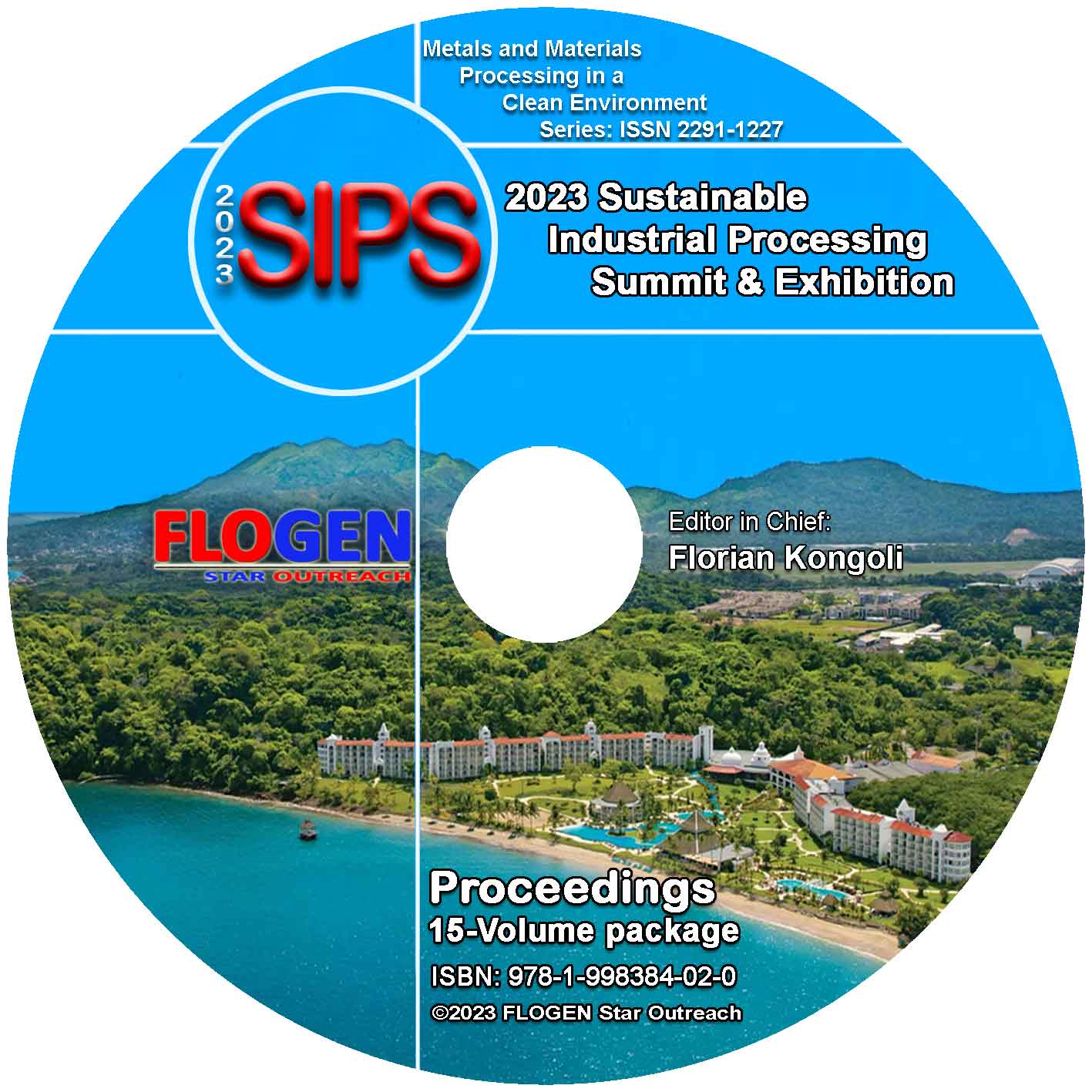2023-Sustainable Industrial Processing Summit
SIPS2023 Volume 12. Intl. Symp on Energy, Carbon, Biochar and Cement
| Editors: | F. Kongoli, S.M. Atnaw, H. Dodds, M. Mauntz, T. Turna, A. Faaij, J. Antrekowitsch, G. Hanke, H.W. Kua, M. Giorcelli |
| Publisher: | Flogen Star OUTREACH |
| Publication date: | 21 December 2023 |
| Pages: | 204 pages |
| ISBN: | 978-1-989820-94-0 (CD) |
| ISSN: | 2291-1227 (Metals and Materials Processing in a Clean Environment Series) |

CD shopping page
OPTIMIZATION OF BIOCOKE FOR ITS USE IN METALLURGY
Gustav Hanke1; Juergen Antrekowitsch2; Christian Dornig1;1MONTANUNIVERSITäT LEOBEN, Leoben, Austria; 2CHRISTIAN DOPPLER LABORATORY, Leoben, Austria;
Type of Paper: Plenary
Id Paper: 112
Topic: 39
Abstract:
Despite all modern technologies and innovative developments, carbon is still of major importance in metallurgy. Not only for iron and steel production, but also for nonferrous metals. In many pyrometallurgical processes, coal and coke are the main reducing agents and important energy sources. However, one product of carbon application is always CO2, which is known as one major problem in climate change.Â
As such, it is indispensable to develop and use new sustainable technologies that reduce or eliminate the CO2 discharge to the atmosphere. In metal production, carbon is still the most important reducing agent and essential for most modern pyrometallurgical processes, and this will not change in near future. In the short- and mid-term, until entirely new processes that are not carbon-based are introduced, the use of coke out of biomass can help to minimize the CO2 footprint. However, coke must meet several requirements in terms of reactivity, stability, grain size, etc. to be used in specific processes. Here, the influence on the process caused by the much higher reactivity and different impurities needs to be studied and defined, to optimize existing treatment procedures, if necessary.
For replacing fossil coke, which is in use today, the coke produced out of biomass must be as similar as possible so that in best case, no changes in the processes are necessary.
For an environment-friendlier solution, the origin of the biomass is also critical. Preferably, the material is locally available and not of any other use. Depending on the location, this could be agricultural residues like olive stones and fruit tree cuttings or waste wood for example.
Until now, the use of biocoke in lead production and in the Waelz kiln was in the focus of research at Montanuniversitaet Leoben. While the application in lead metallurgy is less problematic and was tested successfully, the substitution of coke in the Waelz kiln is more difficult and places higher demands on the properties of the carbon carrier, especially in terms of reactivity. For this, the reduction of reactivity is now in focus and will be critical for the future of biocoke in this process. Trials showed that an increase of the grainsize (pellets) and a treatment with additives like bentonite, has a positive impact on the properties of the coke and could lead to an efficient application.